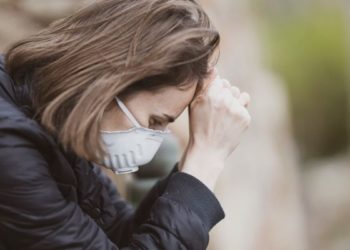PTSD symptoms in Boston-area youth after marathon bombing
Image: PD
1. Youth who attended the 2013 Boston Marathon at the time of the bombings, in addition to those exposed to the subsequent manhunt, were almost 6 times more likely than non-attenders to exhibit psychosocial impairment in the first 6 months following attacks.
2. The majority of parents and caregivers reported not restricting youth television exposure on the day of attacks, with such exposure subsequently linked to higher rates of psychosocial symptoms.
Evidence Rating Level: 2 (Good)
Study Rundown: Previous literature, such as that from the aftermath of the 9/11 attacks, has shown that children suffer from broad sequelae of psychological symptoms after a large-scale terrorist attack. This study sought to further understand the implications of terrorism exposure on the well being of children by surveying parents/caregivers of Boston-area youth affected by the 2013 Boston Marathon bombings and subsequent manhunt. Results indicated that those youth attending the Boston Marathon when the bombings occurred and those exposed to the subsequent manhunt were significantly more likely to display post-traumatic stress disorder (PTSD) symptoms compared to non-attending and non-exposed youth, respectively. When compared to one another, manhunt-related exposures showed a more robust correlation with PTSD symptoms than attack-exposure. Surveys indicated that most adults did not restrict youth from television exposure on the day of bombing, with such television exposure then shown to increase rates of psychosocial impairment in youth. Limitations to this study include self-reported surveys, which may be biased towards including the most significantly impacted youth. Nonetheless, this study provides an understanding of psychosocial impairment and adjustment after a large-scale terrorist attack and serves to guide clinical efforts in treating affected youth.
Click to read the study published today in Pediatrics
Relevant Reading: Psychometric Properties of the UCLA PTSD Reaction Index: Part I
Study Author, Dr. Jonathan S. Comer, PhD, talks to 2 Minute Medicine: Department of Psychology, Florida International University, Miami, Florida.
“The 2013 Marathon bombing and subsequent manhunt affected a truly enormous population of children and families throughout the greater Boston area. We found elevated rates of likely PTSD among area youth exposed to the attack, with children attending the Marathon showing 6 times higher rates of likely PTSD than children who did not. Importantly, although most prior work on children affected by disasters and terrorism has focused on PTSD symptoms, our work showed that children’s exposure to the events was also associated with broader emotional symptoms, conduct problems, and peer problems. Analyses also found that children’s exposure to traumatic aspects of the manhunt that following the attack was more robustly linked to broader psychosocial impairments than children’s exposure to the bombing itself. Moreover, children’s media-based exposure to the events was considerable and the dose of children’s television-based contact with the bombing was significantly linked to PTSD symptoms. Accordingly, it was concerning that roughly two-thirds of parents surveyed had not attempted to restrict their children’s television exposure to the Marathon bombing events.”
In-Depth [retrospective cohort]: This study included retrospective surveys completed by 460 parents and caretakers of Boston-area youth. Each survey assessed youth behavior during the marathon attack week using the UCLA Reaction Index Parent-Report Scale, a validated survey for evaluating PTSD in youths. Parents also completed the Strengths and Difficulties Questionnaire (SDQ) to evaluate psychosocial impairments in the first 6 months following the attack. Eleven percent of marathon-attending youth displayed psychosocial impairment symptoms (emotional symptoms, conduct problems hyperactivity/inattention, peer problems), and were 5.7 times more likely to exhibit PTSD symptoms compared to non-attending youth (X2=15.2, p<.0001). Though both marathon attendance and manhunt-exposure each predicted 9% of PTSD symptom variance, manhunt-exposure was more strongly linked with such symptoms. Surveyed youth watched an average of 1.54 hours (SD = 2.6) of television on attack day, with only 31% – 37.7% of parents reporting restricting television exposure. Television exposure was significantly associated with PTSD symptoms (p < 0.001), conduct problems (p < 0.01), and overall difficulties (p < 0.01).
More from this author: AAP issues update on iodine deficiency and associated pollutants, Duration of post-concussive symptoms identified in pediatric patients, AAP issues new guidelines for freestanding urgent care clinics, Home oxygen therapy for mild bronchiolitis explored, QI methods improve adherence to PALS sepsis guidelines
©2012-2014 2minutemedicine.com. All rights reserved. No works may be reproduced without expressed written consent from 2minutemedicine.com. Disclaimer: We present factual information directly from peer reviewed medical journals. No post should be construed as medical advice and is not intended as such by the authors, editors, staff or by 2minutemedicine.com. PLEASE SEE A HEALTHCARE PROVIDER IN YOUR AREA IF YOU SEEK MEDICAL ADVICE OF ANY SORT.









